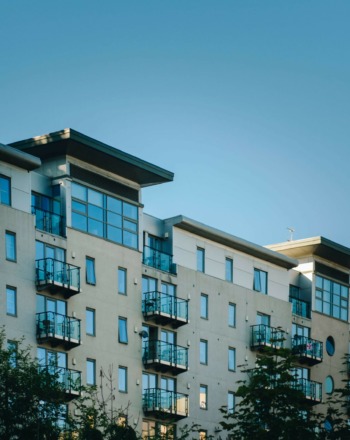As the seemingly never-ending lockdown continues to put Britain's network connectivity to the test and confines millions of office workers to remote working from spare bedrooms, kitchen tables or converted corners, many parts of Britain have been found wanting. There are more than 4,000 ‘not spots’ in the UK that experience crippling-poor broadband connections. Unsurprisingly many of these hard to reach areas are located in rural locations. Addressing this shortfall is vital if businesses in these spots are to survive.
Locked down and locked out
Lockdown is a topic we all wish we could escape. But getting away from it all, at least in the virtual sense, demands improved connectivity.
All across the country this pandemic has brought people’s home and working lifestyles into sharp focus. Urban life is suddenly not so attractive - with its cramped conditions and lack of green spaces. Escape to the country never sounded so attractive - especially if the working from home culture means there’s no requirement to face the grind of the daily commute.
That change in attitude will most likely be sustained far longer than the Covid-19 pandemic itself. This period has shown millions of people that there is a different way to work. Welcome to the new normal.
Those currently in urban areas with good connectivity are becoming increasingly aware that maybe they don’t need to be in the office at all times. Working from home works. But if we take a look at current UK housing trends - many city dwellers now believe they should make their working even more remote. As a result, the demand for rural properties is on the rise.
Understanding the broadband poverty divide
Britain’s infrastructure can’t just flick a switch overnight and reallocate bandwidth and capacity away from the major centres of population and commerce. Those looking to move out of the city could be in for a nasty shock when they find their connectivity is unreliable or too slow to smoothly run all the collaboration tools and programs that have made remote working so much more efficient.
But it is not just the influx of remote city workers that will place demands on wider networks. Those businesses already based in hard to serve locations also use connected technologies and that reliance has accelerated for them in the last year. The collaboration tools and ‘always-on’ technology that improve efficiency and create smarter global working are less effective in areas with poor connectivity. As these technologies become ever more important in keeping businesses competitive - unreliable internet connections could prove costly.
If you build it, they will come
The reality today is that all businesses, regardless of location, need fast fibre optic broadband connectivity to take advantage of the emerging technologies that increase efficiency and smarter working. There are just 10 markets in the world in which as many as 95 per cent of households are served by fibre broadband - and they are mostly the fast growing Asian economies.
Here in the UK however - it is just 14 per cent of households that have access to fibre broadband. And it is no surprise to find they are mostly in urban locations. So why is the UK so far behind and why are other areas so underserved?
Quite simply, there has not been enough incentive for the biggest infrastructure players in the sector, to invest in fibre connections for areas outside of large towns and cities.
As a result, the UK is falling behind its neighbours. Increasing numbers of European countries have secured funding with alternative network (AltNet) providers to deliver nationwide fibre coverage in areas the bigger providers have left untouched. In fact, France is well on course for 80% of all households having FTTH by 2022, 75% of Icelanders already have FTTH access and Spain will have completely converted its telephone network to FTTH by 2020.
Of course, there is a plan to expand the reach of fibre. The UK government has set a target of gigabit-capable broadband in every home by the end of 2025. This longer term vision sets out to bring the UK in line with other countries where it is currently falling behind. So what’s the answer? Bring AltNets into the market to do the work that larger providers have to date not delivered.
An alter-net-tive approach
From the perspective of the giant companies, that situation doesn’t change anytime soon, even allowing for the effects of the pandemic on patterns of work. But it wasn’t through the big tech companies that those other markets reached such high levels of fibre penetration. It was the investment in multiple smaller AltNets that made the difference.
Multiple smaller AltNet providers are far better placed to bring fibre broadband to businesses in remote locations because they can work with much greater autonomy and flexibility. They can design, construct and commission bespoke networks perfect for each area’s environment as well as provide the ‘to the door’ connectivity that links back to the existing powerful national infrastructure.
A Gigabit Voucher scheme launched by the UK government in 2018 allowed many underserved locations to massively increase their connectivity with the help of AltNets. This level of investment has been vital to the cause of connectivity in many rural and other hard to reach locations. And with talks of a new, rebooted scheme, more of our smaller business communities can be served by fibre broadband - especially as departures from the city to the surrounding areas gather pace.
As fibre connectivity is delivered to unconventional business locations, the capacity to quickly introduce and bring that benefit to home workers will also grow. Already, small country towns are announcing digital hubs for a local remote workforce, further emphasising the need for speed in all corners of the nation.
While its communities may welcome a slower pace of life, its businesses cannot survive with slower internet speeds. AltNet fibre networks have a crucial role to play in getting them into the fast lane.






































































































